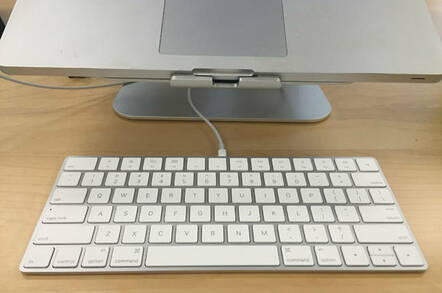PowerToys bring fun tweaks to Windows 10 and 11 • The Register
Friday FOSS Fest Microsoft’s collection of Power Toys for the current versions of Windows has some nifty little helpers, and Power Run may be comfortingly familiar if you’re more used to macOS.
Far back in the lost aeons of the very late 20th century, Microsoft started offering a handy little set of tools for Windows 95 called the PowerToys – some of them, including TweakUI, were written by the inimitable Raymond Chen, who documents seven or eight different sets of tools going by the same name.
A few years ago, they were revived for Windows 10, and last week, the latest version 0.82 appeared. As the Register has noted in the past, they occasionally get new features. Since that last article, a native version for Arm64 flavored Windows has joined the collection. And while they were always free, nowadays, they’re also open source: the code is on Github, including installers, and you can download them directly as well as via the Windows Store.
The Powertoys have their own global settings screen, which mimics that of the Windows Settings app, so you will know what to do – click to enlarge
The 21st century PowerToy that especially struck us this time around is the PowerToys Run utility. It’s somewhat misnamed: it’s not just a run command – you can get that by pressing the Windows key together with R. It’s not just a search tool, either: since Windows Vista, you can search your system (including programs) by just pressing the Windows key on its own.
PowerToys Run can do quite a lot more, though. As well as searching for things on disk by name (programs, files, and folders) it can also search for windows – both by their title, and by the name of the process that opened the window. This functionality used to be in a separate utility called window walker. It can do simple calculations, unit conversions and so on. It can even search for Windows’ internal magic folders – to quote from the documentation:
for example,
> Shell:startupwill open the Windows startup folder
If you switch between different OSes as often as the Reg FOSS desk does, this will remind you of features in a few other graphical desktops, such as the GNOME overview or KDE’s krunner tool… but they all owe at least inspiration to the Spotlight feature of macOS. The original and arguably the best version of this appeared in Mac OS X 10.4 “Tiger” in April 2005, replacing the older Sherlock search tool – which as we noted at the time was very visibly inspired by a third-party app called Watson. We’re very sure that Spotlight is why Windows Vista integrated the (still noticeably slower) Windows Search function right into the Start menu, back at the start of 2007.

Look where the Command key is – right next to the space bar
But it’s not just the functionality of PowerToys Run that will be familiar to Apple users. Its default keystroke is, too: it uses Alt+space. That doesn’t sound the same as the Mac’s Cmd+Space, but it is, because on an Apple keyboard, the Command key is right next to the space bar.
And that tells us something else, too: that none of the Microsoft developers involved in building and releasing this tool are old-style keyboard warriors, because since Windows 1.0 in 1985, Alt+space has been the keystroke to invoke the window-management menu. From Windows 2 onwards, the leftmost button on every Windows title bar even looked like a space bar, to remind you. So to maximize a window, it’s Alt+space, x; to minimize, Alt+space, n; to resize with the keyboard, Alt+space, s, and so on. For decades, even most Linux window managers honored these shortcuts, although KDE invents its own shortcuts and GNOME 3 dispensed with them.

Now you know why that top-left title-bar button looks like that.
But deep inside Microsoft, it looks like this knowledge is forgotten: the old timers who could have passed it on are retiring and becoming YouTube content creators instead… or just rolling around in piles of cash or something.
This keyboard-centric old vulture fired up a Windows 10 partition neglected since – er – June, spent half an hour installing updates, and tried PowerToys Run. It’s pretty good, but we suggest reassigning the keystroke. We set it to Windows+space so it didn’t trample on 35 years of muscle memory.